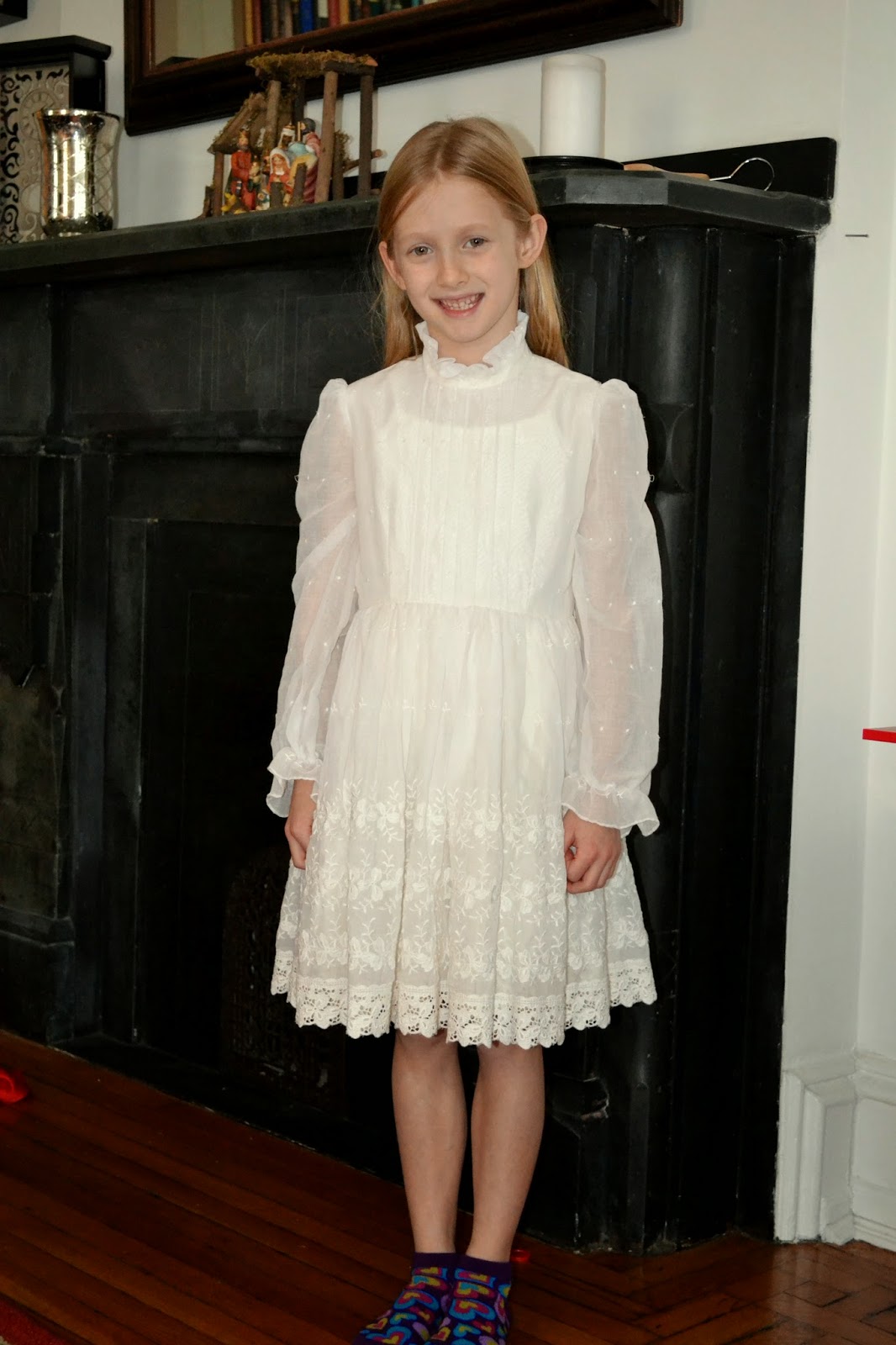Tessa came to me with her mother's dress from the early 1970's. It had been sewn by Tessa's great-grandmother, who was a professional seamstress. Tessa's mother remembers accompanying her grandmother to 4th Street to select the fabric. Tessa is an old soul and it was important to her to wear her mother's dress. But, like many of today's children, she had very particular ideas. She didn't like the collar, it bothered her. She preferred a Peter Pan collar. And she hated the long sleeves - too puffy! Plus, the dress was quite a few inches too short and the acetate lining had yellowed with time, making the dress appear a little Miss Havisham.
I took on the project of re-working the dress with excitement and a little trepidation. This was a family heirloom with great sentimental meaning. There was no additional fabric to work with and no room for mistakes! I washed the dress and removed some minor stains and then I spent a lot of time inspecting every construction detail and making a plan for how to alter it. Finally, I had to admit the only way forward was to dismantle the entire dress. It's rather like renovating an old house - you don't entirely know what you're going to find when you start taking things apart. The delicate fabric required great care.
Once I had it apart and the pieces pressed flat, I could start to plan the design. I wanted to retain all that I could of Tessa's great-grandmother's fine workmanship, but fulfill Tessa's wishes and bring the dress into the 21st century. The biggest challenge was adding length in a cohesive way. Finally one night I had this idea:
If I cut off the original lace hem, the satin Tessa chose for the new collar could also form a wide band at the skirt hem, allowing as much extra length as we wanted In trying to save as much original detail as I could, I hadn't considered cutting off the lace. But in fact, the embroidery looked much nicer next to the satin, which was a perfect match. A delicate waist detail with a tiny bow in the same satin provided cohesion. Again, it's like an old house: to properly patch a very old wooden floor, you "feather in" the new pieces so it blends together. I pitched several ideas to my little client, but this is the one we all liked best.
Stay tuned for the final pictures!


What a treasure!
ReplyDeleteLooks like you did managed to update it in the most beautiful manner (as usual). Can't wait to see the final pictures :)